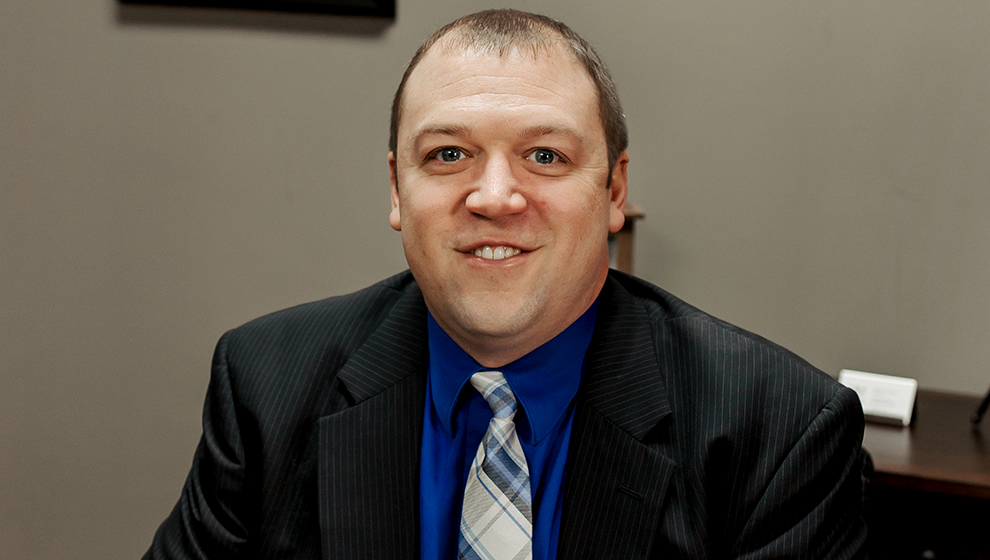This is especially true for the US, where concerns surrounding Medicaid and related fees are paramount. In this feature, Matthew Moore provides us with a look at the most common challenges for elder law clients in the US and how effective estate planning may be undertaken on their behalf.
How does the need to plan financially for medical emergencies grow more urgent as one ages?
The need for proper estate planning exists at all ages due to the uncertainty of what life events may occur. As one ages, the need to plan increases because of the risk for a medical event that may prevent proper planning. For example, if a client does not have a power of attorney or proper estate transition in place and has a stroke, they may be unable to execute these documents after the fact. If this occurs, then we would have to either file a guardianship matter or open a probate estate. Either of these involves court involvement, which is more costly to the client and could have been avoided with proper planning. Thus, getting proper planning done before a medical emergency is imperative.
In Indiana, there are two different types of Medicaid scenarios. The first involves a situation where there is a married couple and one of them enters a nursing facility or needs Medicaid assistance while the other one is still at home (“community spouse”). In this scenario, one of the biggest rules that many people do not understand involves what we refer to as spousal impoverishment provisions. Many of my clients in this situation come into my office worrying about losing their home or running out of financial resources due to their spouse being in a nursing home. With proper planning and the use of these spousal impoverishment rules, we are able to ensure that the community spouse’s home is protected and that they will have sufficient assets to continue to live. Unfortunately, we see too many situations where clients continue to pay these bills without seeking assistance early in the process and no longer have sufficient resources for the community spouse.
The second scenario we often deal with is where a single person needs Medicaid assistance. Indiana currently has a five-year “look back” provision regarding any transfer of assets (both in singles’ and couples’ cases), so many clients feel that if they have wait until someone is in the nursing home they have no options. This belief is also untrue. Although there will be some consequences to making a gift within the five-year time period, we are still able to protect assets for the individual’s future needs and also for their heirs. Again, too many times we see clients who are under the impression that there is nothing they can do and spend all of the individual’s assets on care prior to seeking our assistance.
As one ages, the need to plan increases because of the risk for a medical event that may prevent proper planning.
Do these considerations vary significantly from those seen in other states?
Yes, these rules can vary significantly from state to state, so clients should always seek assistance from a trained professional in their home state.
How can one’s assets or savings affect the availability of treatment under Medicaid?
This is an extremely complicated question. First, as I mentioned previously, it depends on whether we are dealing with a married couple or a single individual. With a married couple, the types of investments can influence Medicaid eligibility more than in a single’s situation.
For example, the retirement accounts of a community spouse are considered “exempt” assets for Medicaid, so in a couple’s situation we would not have to do any planning for the community spouse’s IRAs. In a single’s case, all accounts are considered countable assets, so more complicated planning would have to occur. In both situations, income-producing real estate could be considered an exempt asset, so clients may consider purchasing property as a planning technique. This is why planning in advance becomes some important, as clients can work with a skilled attorney to discuss the various options and the risks and rewards associated with each option.
Tactical use of income-producing property can be a very useful technique in couples’ cases, especially if they have significant assets. Under Indiana Medicaid rules, income-producing property is exempt as an asset for Medicaid eligibility. So, if a couple has to “spend down” assets in order to qualify, they may decide instead to purchase some real estate to complete this spend down. For example, they could buy more farmland or a vacation home. This would allow them to essentially transfer countable assets (cash assets) into an exempt asset which has immediate value to them. Then the community spouse could decide to sell this property in the future without jeopardising the Medicaid eligibility of the spouse needing those services.
The biggest caveat to this planning option is to understand that even though income-producing real estate is initially exempt from Medicaid eligibility, you still need proper planning, as it is still an asset potentially subject to Medicaid estate recovery.
Too many times we see clients who are under the impression that there is nothing they can do.
What issues are particularly common for elderly married couples to encounter?
I think the failure to properly plan in advance and failure to seek proper assistance are the two most common issues I see my clients encounter. Many clients automatically assume that their spouse or their children can do anything on their behalf, so they do not prepare any estate planning documents. Then a substantial life event occurs and they do not have the proper legal paperwork to address the situation.
Second, clients often try to either do their own legal documents or seek advice from someone who is not trained in this area. I often tell my clients: “I am not a plumber, so when I have a leak, I call a plumber to fix it correctly. I would rather pay someone to do it correctly than have a problem later on.” This is the same for legal work. You may be able to print forms off the internet more cheaply than having an attorney prepare them, but you do not know what you may be missing. You may have a correctly executed document, but you will still have no planning for that document – the most important part.
The same can be true if you do not use an attorney who is skilled in this area. If you go to a general practice attorney to ask questions about Medicaid or advanced estate planning, they will not be able to answer the questions correctly. This can cause substantial financial losses, simply because clients did not seek proper assistance. Many lawyers will fail to consider Medicaid issues or render opinions based on the same false assumptions that clients have regarding these issues. Some law offices even allow legal assistants who do not attend any formal legal training or continuing legal education to provide clients with advice or to actually perform work on their behalf. I have seen situations where clients have lost a significant amount of money and did not even know they had other options.
How can Medicaid planning help to overcome these obstacles?
Medicaid planning allows you to learn the options available to you so that you can make an educated decision. The majority of our Medicaid plans have pros and cons that the client must consider. Additionally, there are often a variety of options that a client should consider. When a client knows all of their options and can understand the risks and rewards, they are able to make sound financial decisions. In the majority of cases, we are able to help the clients to make decisions that protect assets either for themselves or their heirs. Proper Medicaid planning allows clients to use strategies to minimise their risk and maximise their asset protection.
What are the most essential steps to take when devising a successful Medicaid plan for an individual or a couple?
I think this is simple – work with a skilled attorney who focuses specifically in the area of Medicaid planning. Do not use companies that rely on legal assistants or other non-lawyer professionals to create Medicaid plans. With a skilled attorney, clients can rest assured that they have received valuable information regarding their options.
Failure to properly plan in advance and failure to seek proper assistance are the two most common issues I see my clients encounter.
What do you foresee in the future of elder care in your jurisdiction?
I foresee that Medicaid planning when a person enters a nursing home will become more difficult in the near future. Due to the baby boomer generation, I think the amount of individuals needing nursing home assistance is going to grow. Combine that with the fact that Medicaid, like many other agencies, is going to continue to face financial issues, and I believe this will result in fewer planning options at the time an individual actually enters a nursing facility. Thus, I think early planning with a skilled attorney is going to become more important in the near future.
Who needs the help of an elder law attorney?
I think almost anyone can be a good referral for my office. Even though we call ourselves elder law attorneys, everyone over the age of 18 should have an estate plan in place. I think people who are younger just do not want to take the time to think about these issues, so we generally end up working with people who are a little older.
One of the common claims I hear from financial planners in my area is that their clients have either too little or too much money to seek my assistance. This is just not true either. I can present almost everyone I meet with options that will either help them avoid the costs or probate or potentially provide options for potentially long-term care costs. However, if they rely on someone who does not understand the rules in these areas, they risk costing their spouse or their heirs a significant amount of money due to costs and expenses that could have been avoided.
[ymal]
I understand that most people do not want to talk about these issues or do not like talking to attorneys. However, to most people, outside of their religion and family, their financial wealth is the most important thing to them. To trust something this important to a do-it-yourself kit on the internet or someone who is not trained in this area has never made much sense to me. We all work hard to accumulate our wealth and assets. To trust someone who does not know what they are doing with these items seems like a bad idea to me.
Matthew C Moore, Founder
2 West Pearl Street, Batesville, IN 47006
Tel: +1 812-932-1227
Matthew C Moore is an attorney and founder of Moore Law, LLC. Matthew has been admitted to practice law in Indiana since 2006 and has over 15 years of experience. Before forming Moore Law, LLC, he worked as an associate and partner at two prior Indiana firms. Born and raised in southeastern Indiana, Matthew has spent the majority of his life serving the people of his community. He enjoys spending time with his wife, Kindra, their two children, and various pets. He has been actively involved in his community his entire life and enjoys serving others.
Moore Law, LLC is located in southeastern Indiana, but serves clients throughout the state of Indiana. The firm is primarily dedicated to the practice of elder law, nursing home and Medicaid planning, with an additional focus on personal injury, estate planning, healthcare and probate matters.





















